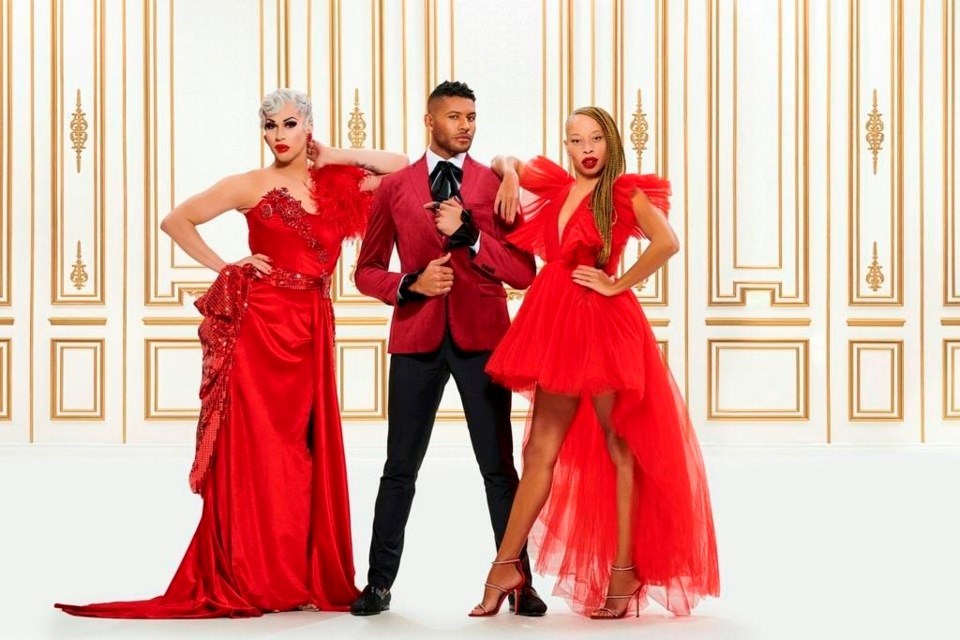TORONTO — When "Canada's Drag Race" starts its engines Thursday on Crave, it will be just as glittery and entertaining as the American version, say the judges.
But with the camp and "condragulations" comes an added level of resonance, as the series arrives just after Pride month and Canada Day, and amid the Black Lives Matter movement's urgent calls for justice and more representation of marginalized voices, they add.
With that, Brooke Lynn Hytes, Jeffrey Bowyer-Chapman, and Stacey McKenzie hope the series serves as an important "educational experience" that isn't taken for granted.
"It's entertaining, but it tells the stories of queer people and of drag artists in a way that humanizes us," Bowyer-Chapman, an actor and activist, said in a phone interview.
"It peels back the layers of otherness or misconceptions that the general population — the status quo, heteronormative audiences — may place upon us. They may see us as this other thing, they may see drag queens as these beasts, these monsters. They may see Black, queer people as these very threatening femme queens, or whatever stories they tell themselves.
"And I think that through the beauty of this show and showcasing the artistry of drag, and getting to know who these individuals are on a deeply personal level through their interactions and experiences and them sharing their life stories on the show, it's the perfect equalizer... It shows that we have so much more in common than what separates us."
Like "RuPaul's Drag Race," the Canadian version is a competition series in which drag artists compete in a series of challenges for the title of the Next Drag Superstar and a grand prize of $100,000.
Bowyer-Chapman is on the main judging panel alongside McKenzie, who is a supermodel, runway coach and "America's Next Top Model" mentor; and Hytes, who was the first Canadian competitor to be featured on "RuPaul's Drag Race" and placed second on the show.
Singer Deborah Cox and actors Elisha Cuthbert, Tom Green, and Amanda Brugel are among the celebrity guests in the episodes, which roll out weekly.
The core of the show is the same as the American one, minus RuPaul, said the judges. And there are some "Canadian nuggets," including a giant, glittery maple leaf on set.
"The show is so important for Canadian queens because it gives them something to work towards. It gives them a goal, it gives them a dream," said Hytes, a classically trained ballet dancer and model who's performed around Canada and the U.S. Hytes is the drag queen persona of Toronto-raised performer Brock Hayhoe.
"That's the reason I left Canada to go to the States, is because I wanted to get on 'RuPaul's Drag Race' and because in Canada, I didn't have any more goals left, I didn't have anything to aspire towards.... And now we're bringing that dream to Canada and bringing it to all these amazing queens who work so hard."
In trying to inspire the queens, the judges found themselves also learning a thing or two.
"I definitely learned how to do better makeup," McKenzie said with a laugh, adding that they were also inspired by the queens' bravery, resiliency, and willingness to be vulnerable.
"The way they took the critiques was really refreshing. As a person who has worked on quite a few reality shows, competition shows similar to 'Drag Race' — I have never met a group of competitors who were just so open and so hungry to learn. They put aside all the their egos, all their high and mightiness."
As Bowyer-Chapman put it, the only way the LGBTQ and Black Lives Matter movements can endure is for people to educate themselves.
And shows like "Canada's Drag Race" can help with that, "so that we don't repeat the same mistakes over and over and over again."
"At this moment, it's important for 'Canada's Drag Race' audience, the young kids, to enjoy the celebration of our community while also paying respect and homage to the trailblazers who have come before us, who have made it possible for us to have a show like this," said the former "Unreal" cast member, who's been a guest judge on "RuPaul's Drag Race" and is a vocal advocate for diversity and inclusion, particularly for people of colour and the LGBTQ community.
"And it's important for older generations who watch the show, to be able to acknowledge the importance of having a show like this and to inspire others to consistently and continuously educate themselves and enlighten themselves — and to make it abundantly clear that ... our rights and a show like 'Drag Race' on the air is not something that can be taken for granted. It's a gift and it's a blessing, but it's something that we've worked for and worked towards for generation after generation."
This report by The Canadian Press was first published July 1, 2020.
Victoria Ahearn, The Canadian Press


